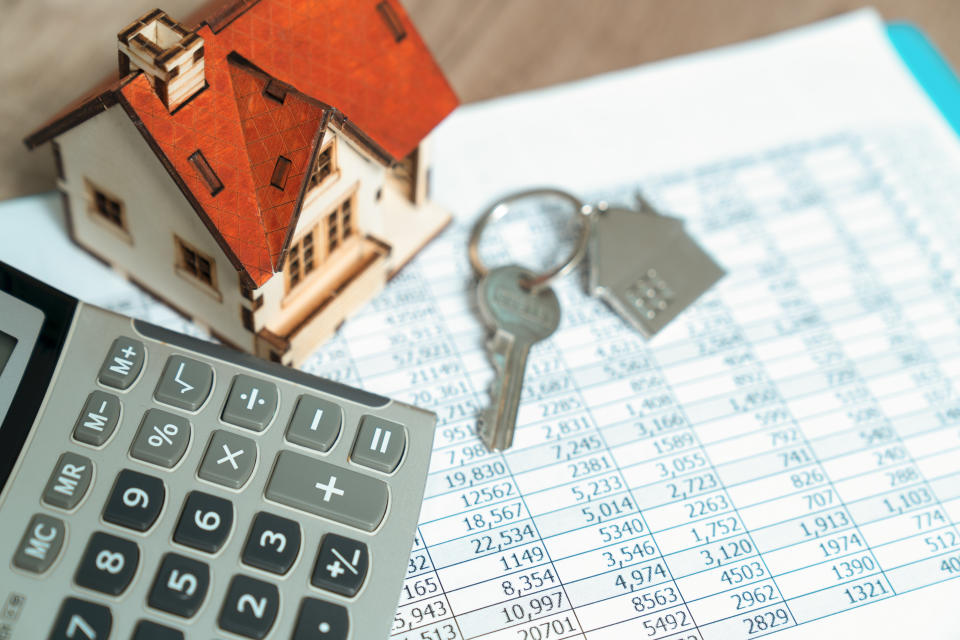What mortgage should I get? The different types of home loan on offer

Choosing a mortgage can be a daunting process. Getting your head around the jargon is stressful enough, let alone making the best financial decision when you’re about to take on a large amount of debt.
But the mortgage products on offer aren’t all that complex when you strip them down to the fundamentals.
Here’s a list of the most common types of mortgage you’ll come across and what each term means. Not all the features are exclusive and may be applied to the same mortgage product.
Fixed rate mortgage
This is a mortgage where for a certain amount of time the interest rate is fixed. Typically, you’ll see mortgages with a fixed rate period of anywhere between one and five years.
You’re locked in for the duration of the fixed period, meaning you either cannot remortgage or you’ll be subject to an early repayment charge if you do, which could cost you thousands.
At the end of the fixed period, you move on to the lender’s standard variable rate, which is usually higher, at which time you’re free to remortgage and seek a new, better deal.
The benefit of a fixed rate mortgage is that you have certainty over your repayments for a specified period, making it easier to plan.
The downside is that if interest rates fall, you won’t benefit—although if they rise, you’re then paying less than you might have.
Standard variable rate mortgage
Each lender has their own standard variable rate on offer, which they calculate.
You wouldn’t ordinarily begin with a standard variable rate mortgage. It’s the default onto which you move once your original deal, such as fixed rate or discounted rate products, expires.
Discounted rate mortgage
Under a discounted rate mortgage, for an agreed period of time a lender will apply a discount to its standard variable rate on your loan, reducing your monthly repayments.
The upside is that, if interest rates fall, your rate is variable, so it will fall too. But the opposite is also possible—higher rates, higher repayments.
Tracker mortgage
The interest rate on a tracker mortgage is variable and will ‘track’ a particular benchmark, such as the Bank of England’s Base Rate, as it rises or falls.
Repayment mortgage
A repayment mortgage is a loan where your monthly payments reduce the value of the capital sum (the total amount of the mortgage) as well as pay off the interest as you go along.
This means that, by the end of your mortgage term, all your debt plus interest will be paid off.
Interest only mortgage
An interest only mortgage is a loan where each month you only pay the interest applied.
This is therefore cheaper on a monthly basis than a repayment mortgage, but at the end of the term you will need to pay off the full amount in one go.
You’ll either need access to a significant sum of money at the end of your mortgage term or to have saved enough cash concurrently with making the interest payments, which is risky, especially if you’re making investments with that capital.
Offset mortgage
Some lenders offer an offset mortgage, which allows you to use your savings to offset the your mortgage, reducing your repayments.
The mortgage will be linked to a savings account. The more you save into that account, the less you pay in interest by offsetting a portion of the loan against your savings.
Cashback mortgage
These mortgages give you cashback when you take out the loan, usually up to about £1,500. They can be attractive as they put money in your pocket when you’re trying to bear moving costs.
But they often come with higher fees and interest rates, which can make the total cost of a mortgage more expensive than other deals.
Flexible mortgage
Flexible mortgages have, as the name suggests, flexibility built in.
They may allow you to make substantial over or under payments each month, or perhaps take an extended repayment holiday if you need a financial break.
Some will allow you to withdraw money through equity release. It depends on the terms of the specific mortgage product.
But flexibility comes at a cost, and you may find that your interest rate is higher as a result.

 Yahoo Finance
Yahoo Finance 